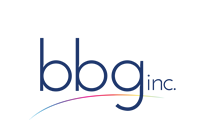Info for Part-time or Other Employees Currently Without Health Insurance
There’s lots of noise out there related to Obamacare’s individual mandate and the rapidly approaching March 31 open enrollment deadline. Here’s summary information for those part-time or other employees that currently do not have any health insurance:
- The deadline to sign up for individual health insurance is March 31 – less than a week away. This marks the end of the open enrollment period. After March 31, those without coverage will not be able to purchase an individual health plan (on or off the exchange) until the next open enrollment period beginning in November — unless they have a qualifying event such as marriage, birth of a child, loss of employer sponsored health coverage, move out of state, have a significant income change, etc. If that’s the case, then they can enroll during a special enrollment period.
- Extensions may be available based on information released just yesterday. According to latest reports if someone started to apply for coverage through the HealthCare.gov website but could not finish by March 31 or they experienced other glitches in trying to sign up, they will have until about the middle of April to seek an extension. Individuals can qualify for an extension by checking a blue box on the HealthCare.gov website indicating that they’ve tried to enroll before the deadline. The following are links to recent news stories that reported the extension that was officially announced yesterday:
http://www.reuters.com/article/2014/03/26/usa-healthcare-enrollment-idUSL1N0MN04Y20140326
http://www.thefiscaltimes.com/Articles/2014/03/25/White-House-Extends-Enrollment-Time-Obamacare
- If someone goes without health coverage after March 31, they may be subject to health reform law’s tax penalty come tax time next April for not having coverage. The penalty this year is $95 or up to 1% of income, whichever is greater.
- Some financial assistance may be available. Individuals and families with incomes between 100 percent and 400 percent of the poverty level (about $11,490 to $45,960 for individuals) may qualify of premium tax credits (also referred to as premium subsidies). Tax credits are based on a percentage of household income and are applied on a sliding scale for those that qualify.
Individuals who want to obtain health care insurance before the March 31 deadline should visit Healthare.gov to begin their application process.
